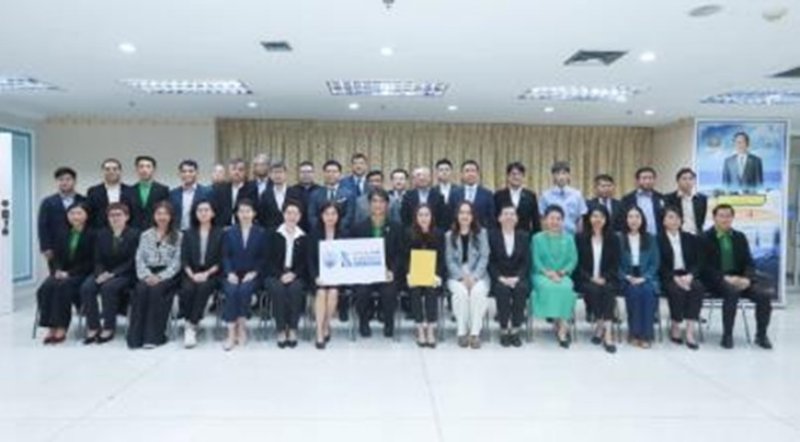CSR Priorities
GC has established projects under CSR Mater Programs as well as other beneficial projects to be the key effort in balancing the 2E1S (Economic, Environment, and Social) and leading to sustainable development in accordance to the UN SDGs.
Corporate Social Responsibility (CSR) Projects and Activities in 2024
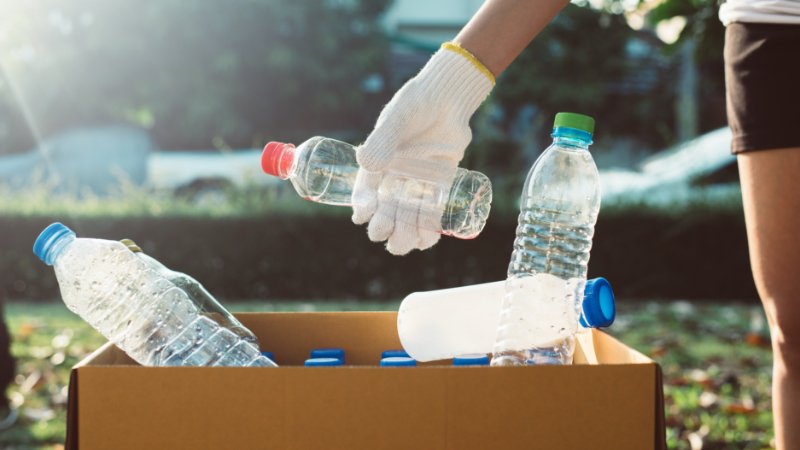
Number of CSR activities and projects
Projects
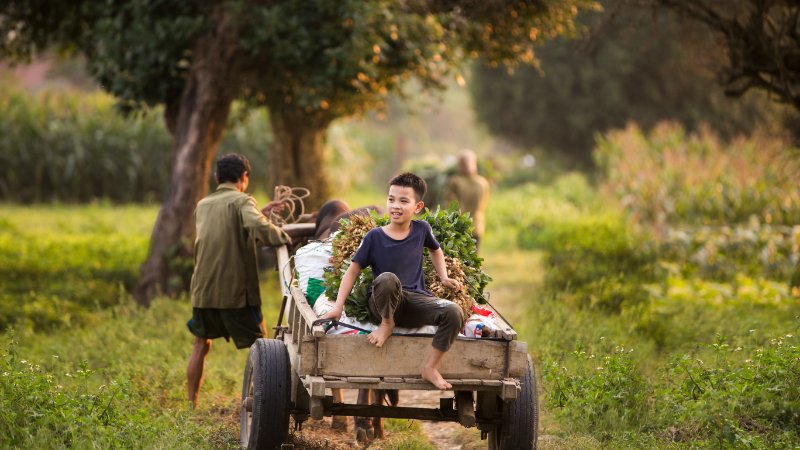
Number of provinces that GC was implemented CSR projects and activities
Provinces
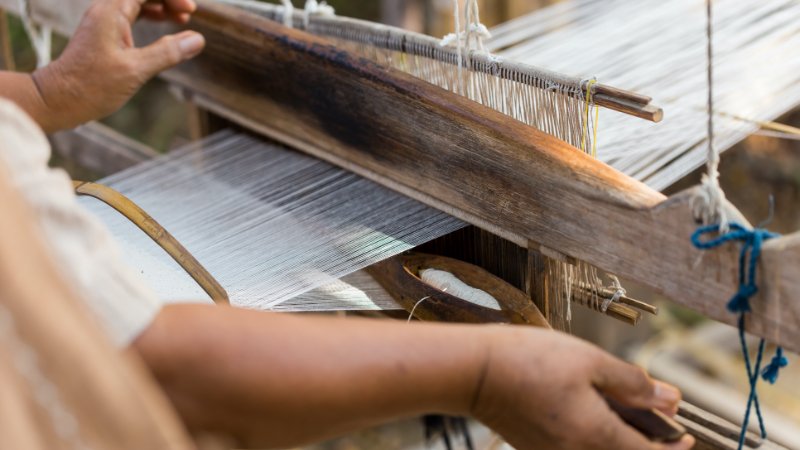
Number of communities which have been developed by CSR projects and activities
Communities
| Summary of CSR Projects and Activities | 2021 | 2022 | 2023 | 2024 |
|---|---|---|---|---|
| Number of CSR activities and projects | 217 Projects | 372 Projects | 96 Projects | 155 Projects |
| Number of provinces that GC implemented CSR projects and activities | 77 Provinces | 12 Provinces | 13 Provinces | 55 Provinces |
| Number of communities which have been developed by CSR projects and activities | 88 Communities | 88 Communities | 88 Communities | 98 Communities |
GC prioritizes the CSR projects and activities based on three priorities, including Better Living, Sharing, and Ecology that cover economic, social and environmental dimensions.
Economic
Social
Environmental
Better Living
Enhancing the quality of life for community and society in dimensions of economic, social and environment to create the highest value to society and business.
Description of alignment between priority and the business drivers
GC values the development of quality of life of communities and society. The company intends to boost well-being, income and economy and develop human resources under the self-sufficiency and self-sustainability concepts. GC focuses on CSR projects that create business growth to company while improving quality of life to provide long-term value for society.
Last year, the company collaborated with government and private sectors to add value to used plastics, benefiting society. Projects included
Planting Seeds of Happiness: Suan 50 Suk Nurtures Bangkok's Green Renewal
GC collaborated with the Bangkok Metropolitan Administration (BMA), Khlong Toei District Office, the Expressway Authority of Thailand EXAT, and Ichitan Group PCL. to develop an unused space under the Chalerm Mahanakorn Expressway area near Soi Sukhumvit 50 into a public park, “Suan 50 Suk.” The project aims to increase green space, alleviate PM2.5 air pollution, and support Bangkok’s “One Million Trees” planting project.
As part of the initiative, GC introduced the GC YOUturn Platform to implement closed-loop waste management in the area. The platform promotes resource circularity by encouraging proper waste segregation within the community, enabling waste to be returned to the circular economy and transformed into new value. This initiative also aims to establish Suan 50 Suk as a pilot area for integrating circular economy concept in daily life and contributing to a healthier environment for the surrounding community.
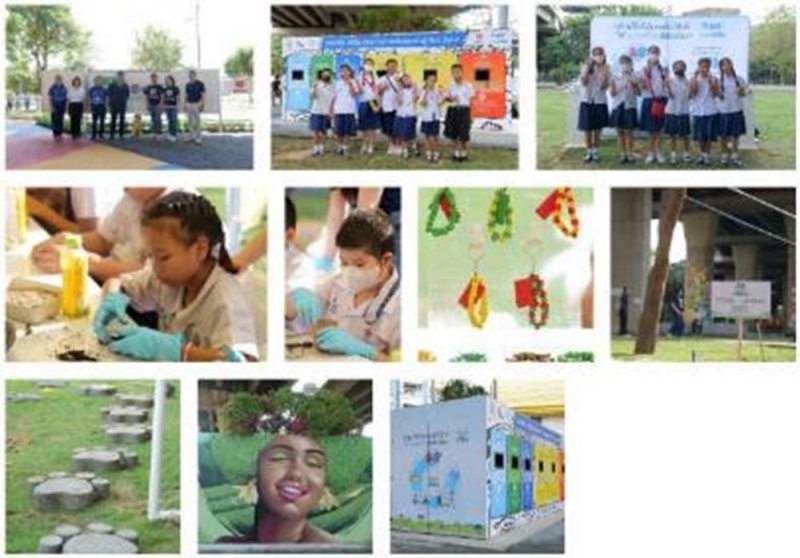
“Namjai Thai Panich rPET” drinking water bottles
GC collaborated with Siam Commercial Bank (SCB) to produce the “Namjai Thai Panich rPET” drinking water bottles, made from recycled plastic by ENVICCO, a high-quality plastic recycling facility. This initiative has reduced the use of 1.3 million new plastic bottles, equivalent to the carbon dioxide absorption capacity of 2,200 trees over one year, and results in 60% lower greenhouse gas emissions compared to conventional plastic bottle production. Furthermore, the bank has established a policy to scale up the collection of used plastic bottles by partnering with the GC YOUturn platform, which manages post-consumer plastic. The aim is to bring used bottles back into the recycling system and maximize their reuse in line with the circular economy, thereby concretely reducing environmental and social impacts.

The “Love the Chao Phraya, Say Goodbye to River Waste” project brings together collaborative efforts with the community to sustainably address waste issues in the Chao Phraya River.
GC collaborated with PTT Oil and Retail Business Public Company Limited (PTT OR), the Bang Nam Phueng community, and relevant agencies to develop a sustainable waste management model for the Chao Phraya River. A pilot area was selected at Wat Bang Nam Phueng Nok in Phra Pradaeng District, Samut Prakan Province, a location facing significant waste problems and known as a riverside tourist attraction. Volunteers and community members worked together to collect waste from the river and riverbanks, separating plastic waste from general waste for recycling and upcycling through the "GC YOUturn Platform." Used plastics are transformed into higher-value products, helping to reduce plastic waste that could otherwise flow into the ocean and harm the ecosystem. The project also promotes waste segregation and management knowledge within the community, which is a fundamental component of the Circular Economy.
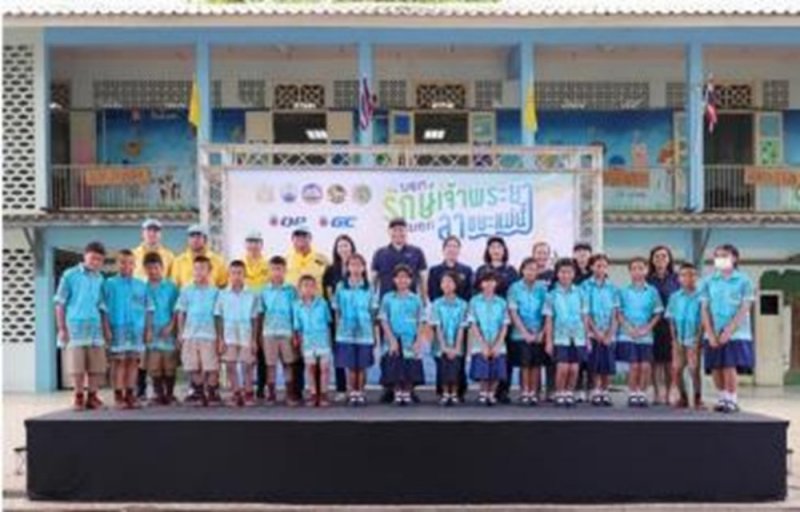
Green University Project: “Tink-Turn for the Planet: Upvel 2”
GC, in collaboration with AIS, continued the Green University project “Tink-Turn for the Planet: Upvel 2” for the second consecutive year. The initiative aims to engage university students and young people in addressing environmental issues and promoting awareness of waste management, including both plastic and electronic waste. Over a period of just two months, more than 1,058,634 items were collected, used plastic waste through the GC YOUturn platform and electronic waste via the AIS E-Waste+ application.
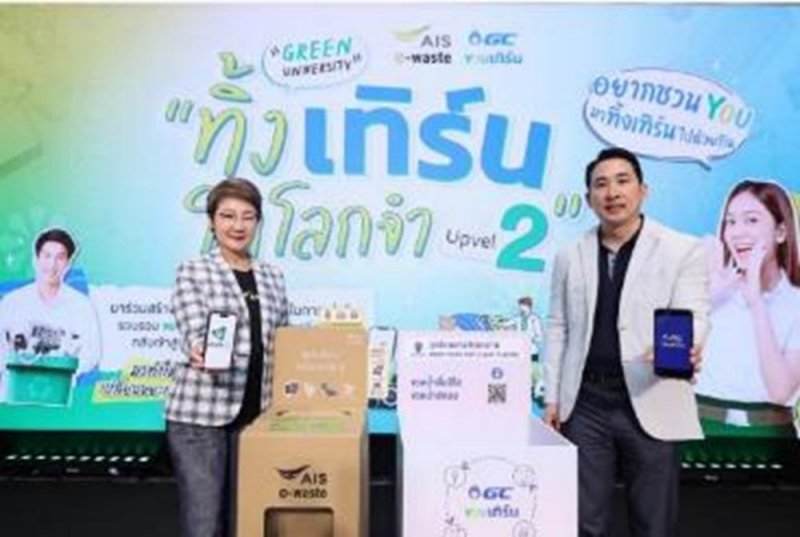
Community Waste Model Project
Since 2020, GC, in collaboration with ENVICCO, has implemented the Community Waste Model project, applying circular economy principles to manage recyclable waste within communities. The initiative aims to maximize resource efficiency by identifying model communities in Rayong Province with strong potential for systematic recycling. The project supports the development of these communities into fully integrated recycling management centers by providing funding for center establishment, encouraging the formation of community enterprises, and jointly planning and managing the centers in a participatory and sustainable manner.
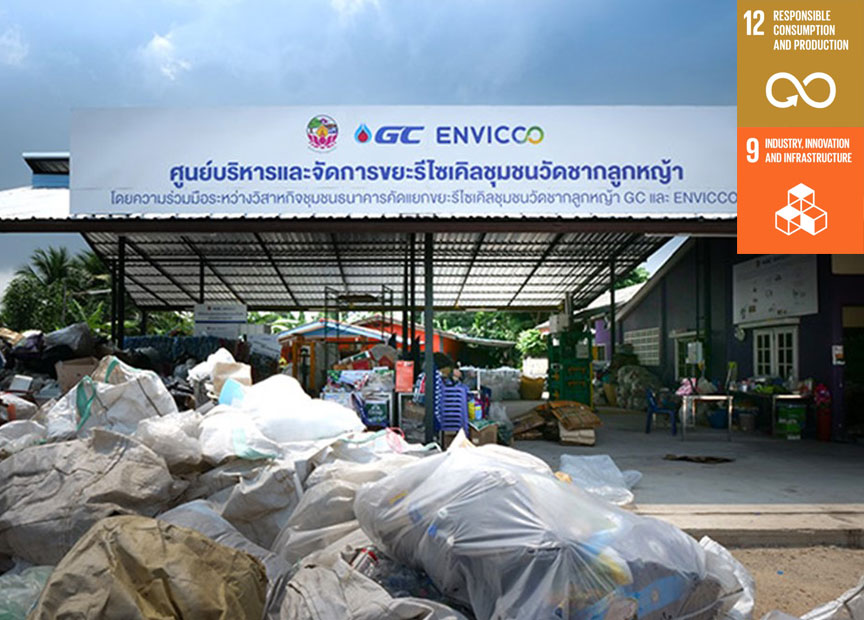
In 2024, the Community Waste Model successfully channeled over 300 tonnes of used plastic to ENVICCO. This created jobs and income opportunities, with community enterprises earning over 6 million baht. Expansion plans are currently underway to replicate the model in other communities or with new partners.
Starting in 2025, the project has shifted to a Co-Development Model, where both the Company and communities or partners co-invest and co-develop the initiative. This approach promotes co-ownership and long-term sustainability, encouraging communities to actively maintain and expand the initiative. It also serves as a learning model for other communities and companies, helping scale the project. The Company acts as a mentor, providing guidance and knowledge.
To date, the Company has established 11 community recycling centers in Rayong, Nakhon Pathom, Samut Prakan, and Prachinburi, and jointly launched 6 additional centers with partners including the Royal Thai Fleet, Royal Thai Marine Corps, and PPP Plastics in Rayong and Chonburi.


Business Benefit KPIs
- The quality of used plastic bottles contributed to a 15% increase in ENVICCO’s production yield
- Raised awareness among target groups and the general public, as measured by a public relations (PR) value of 4,965,000 baht.
- Enhance GC’s capability in developing eco-friendly products through innovation.
- Support the achievement of goals and image as circular economy leader.
Social/Environmental Benefit KPIs
1.
SROI
2.
Generate income
THB
per year from sales of waste into recycling system
3.
Recycle approximately
tons of PET/HDPE bottles in 2024.
4.
Reduce waste disposal expenses of local government authorities such as Map Ta Phut City Municipality by up to
THB/year.
5.
Reduce approximately 555,110.91 tons CO2 equivalent of greenhouse gas emission from lower use of virgin plastic and landfill, which equals to planting 58,432.77 large trees.
Sharing
Sharing expertise to society and achieve value for business
Description of alignment between priority and the business drivers
GC leverages corporate strengths by sharing areas of expertise to promote its brand and reputation among local communities. We maintain our contributions to society and stakeholders to build trust.
In the past year, various projects have been undertaken, including
Fun Science Lab” Science Classroom Project in Rayong Province
GC, in collaboration with the Faculty of Science, Chulalongkorn University, launched the “Fun Science Lab” Classroom Project at Ban Nong Faep School in Rayong Province. The project aims to support youth science education through Active Learning, focusing on hands-on experience and the development of knowledge and skills as a foundation for further education and future careers. The classroom is equipped with various teaching tools, including a human anatomy model, astronomy models, microscopes, and over 50 science experiment kits to spark students' imagination and enhance learning. It also features a 3D printer and chemistry experiment kits for in-depth exploration of everyday chemicals and the development of new products. This initiative is expected to serve as a catalyst for enhancing the potential of local youth, promoting science education, and laying the groundwork for sustainable community and societal development in the future.

“Kin Tiew Liew Lae Kwai” Project: Integrated Career Learning and Development Initiative
The “Kin Tiew Liew Lae Kwai” project focuses on developing vocational skills and positive behavioural habits among inmates through a variety of hands-on training activities. Participants gain real-life experience in noodle shop operations, including food preparation, customer service, and basic restaurant management. The project aims to equip inmates with skills they can use for employment after release, enabling them to support their families, reduce the likelihood of reoffending, and rebuild trust within society.
Since 2021, GC’s executives and staff have collaborated with Huaipong Open Correctional Institution in Rayong to advance this initiative. The program integrates learning and skill-building activities to foster behavior transformation, create equal opportunities, and help reduce social disparity.
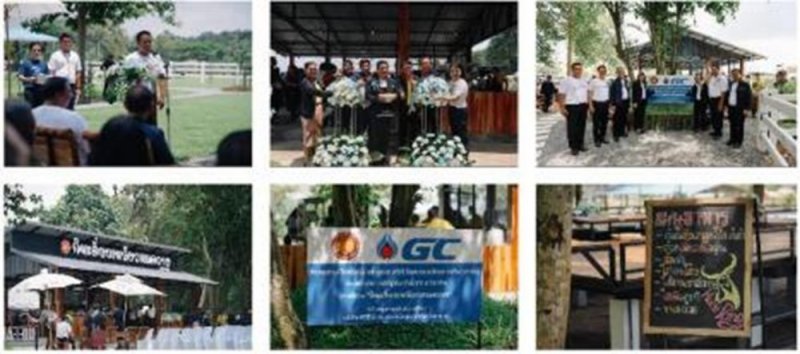
LUFFALA Community Enterprise
GC has collaborated with the Eastern Economic Corridor of Innovation (EECi), the National Nanotechnology Center (NANOTEC), and the Luffala Community Enterprise Group to develop a range of eco-friendly skincare products using bio-surfactants, which are environmentally friendly and meet international consumer standards. This initiative supports Decent Work and Economic Growth by enhancing employment opportunities and income for the community. GC also provides guidance on production techniques, marketing, and accounting. Due to continuous development, over the past year, the Luffala Community Enterprise Group won awards last year for Best Body Wash Product and Best Innovative Product in the mineral spray category made from Centella asiatica extract. Additionally, two products containing bio-surfactants and packaged in recycled plastic received Carbon Footprint Product (CFP) certification from the Thailand Greenhouse Gas Management Organization (Public Organization).
This project demonstrates the company’s commitment to enhancing the competitiveness of environmentally friendly community products and serves as a model of sustainable collaboration between business and local communities.
Income from LUFFALA project
| Year | Generated Income of the Community | Profit of LUFFALA |
|---|---|---|
| 2021 | 3,986,122 THB | 730,201 THB |
| 2022 | 2,510,324 THB | 558,511 THB |
| 2023 | 2,030,035 THB | 519,808 THB |
| 2024 | 1,586,795 THB | 392,623 THB |
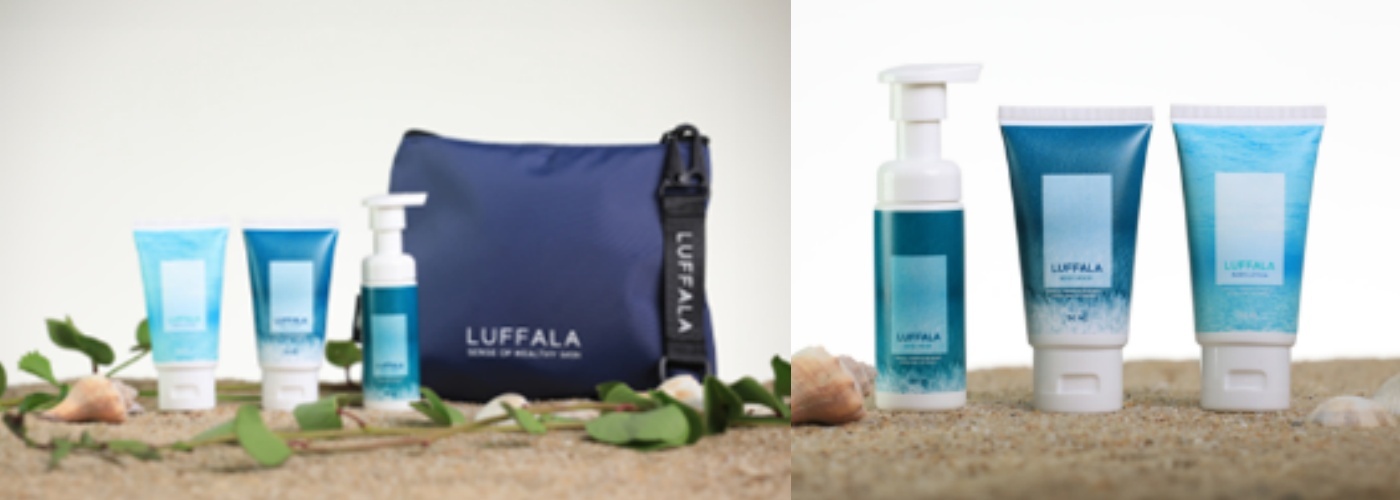
Business Benefit KPIs
- Highlight GC’s position in creating shared value with the society
- Build GC’s image as leader in circular economy
- Generate income of 1,586,795 THB (from sales of products)
Social/Environmental Benefit KPIs
1.
SROI
2.
Generate income of over
THB per year for local communities and community enterprises in Rayong province
Ecology
Ecology Developing ecological sustainability to offset environmental impacts from operation.
Description of alignment between priority and the business drivers
GC gives high priority to operate business in ecologically sustainability manner throughout the value chain. The project implements the forest restoration and increase biodiversity in the GC’s operation area in Rayong province. In the past year, projects carried out included
GC and Marine Department Unite for Mangrove Conservation
GC participated in the signing a Memorandum of Understanding (MoU) on collaboration between the Department of Marine and Coastal Resources and the Thailand Mangrove Alliance, alongside executives and representatives from over 33 private sector organizations. The event was held at the Department of Marine and Coastal Resources. The MoU aims to integrate efforts from all sectors to drive the conservation and restoration of mangrove ecosystems through the Thailand Mangrove Alliance network in a tangible manner, in line with sustainable development principles.
